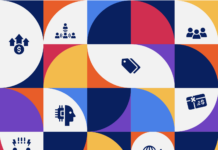 Here are 13 ways event organizers can apply artificial intelligence technology such as ChatGPT to gain a competitive edge in today’s market.
Here are 13 ways event organizers can apply artificial intelligence technology such as ChatGPT to gain a competitive edge in today’s market.
Artificial intelligence (AI) technology, such as ChatGPT, is a lot of fun to play with. But it’s more than a toy or a new way for kids to cheat on their schoolwork. Meeting and event organizers and hospitality professionals can leverage AI tools to better understand and promote their advantage over the competition.
 Prevue asked James Feldman, CSP, CITE, CPIM, CPT, CPC, PCS, a recession revenue rescue advisor, consultant at Shift Happens!, author and keynote speaker who teaches a seven-week course in leveraging ChatGPT for business, to outline how event organizers and hospitality professionals can apply this technology to better understand and promote their own competitive advantages. Here are 13 strategies he says planners can take advantage of now to increase attendance, reduce costs and labor, and enhance both events and the organizations that produce them.
Prevue asked James Feldman, CSP, CITE, CPIM, CPT, CPC, PCS, a recession revenue rescue advisor, consultant at Shift Happens!, author and keynote speaker who teaches a seven-week course in leveraging ChatGPT for business, to outline how event organizers and hospitality professionals can apply this technology to better understand and promote their own competitive advantages. Here are 13 strategies he says planners can take advantage of now to increase attendance, reduce costs and labor, and enhance both events and the organizations that produce them.
- Content Generation: ChatGPT can assist in crafting persuasive and tailored marketing messages that highlight the unique selling points of a venue or event, thereby setting them apart from competitors.
- Consumer Insights Analysis: By analyzing customer reviews and feedback, ChatGPT can identify the elements that consumers value most. This data-driven approach can guide planners and hoteliers in promoting the strengths of their offerings.
- Virtual Assistance: Chatbots powered by ChatGPT can provide instant, personalized responses to potential clients, addressing specific inquiries about the features and benefits of a venue or event.
- Personalized Communication: ChatGPT can help create customized and targeted emails or newsletters, enhancing relationships with attendees, sponsors and exhibitors.
- FAQ Automation: Implementing ChatGPT in a FAQ section can provide precise and reliable information, fostering trust and credibility among potential customers.
- Reputation Management: ChatGPT can aid in monitoring online reviews and feedback, allowing businesses to respond appropriately and build a positive public image.
- Segmentation Analysis: ChatGPT can process customer data to identify specific segments, such as demographics or preferences, allowing for targeted marketing.
- Lead Qualification: ChatGPT can automate qualifying leads by interacting with potential clients and assessing their interests and fit.
- Content Optimization: ChatGPT can assist in tailoring marketing content for different platforms and audience segments, ensuring a cohesive and targeted approach.
- Market Trend Analysis: ChatGPT can help strategize marketing plans aligned with the current market demands by analyzing industry trends.
- Continuous Learning and Adaptation: ChatGPT can adapt to changing consumer behaviors and preferences, ensuring that marketing strategies remain relevant.
- Innovation in Customer Engagement: The deployment of ChatGPT in interactive customer service allows businesses to stay ahead of the curve, offering cutting-edge solutions.
- Sustainability: Using AI for automation and optimization can lead to cost-efficient practices, contributing to long-term sustainability.
In short, says Feldman, ChatGPT can be an invaluable tool for meeting planners, hoteliers and professionals in the hospitality industry. He adds, “By leveraging AI’s capabilities in content generation, personalization, analysis and automation, businesses can create more targeted and practical strategies that boost competitiveness and foster trust, efficiency and future growth.”
You Also May Be Interested In…
ChatGPT Is Great for Events (Sort of)










